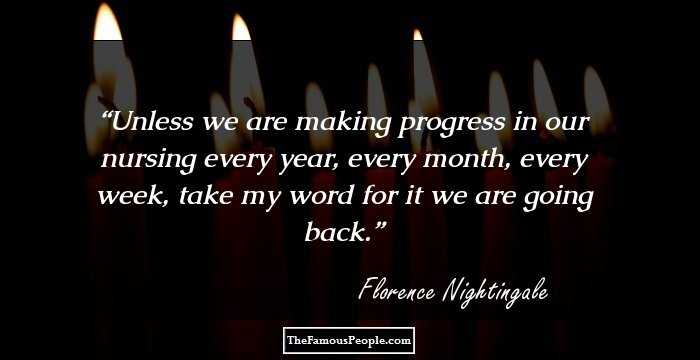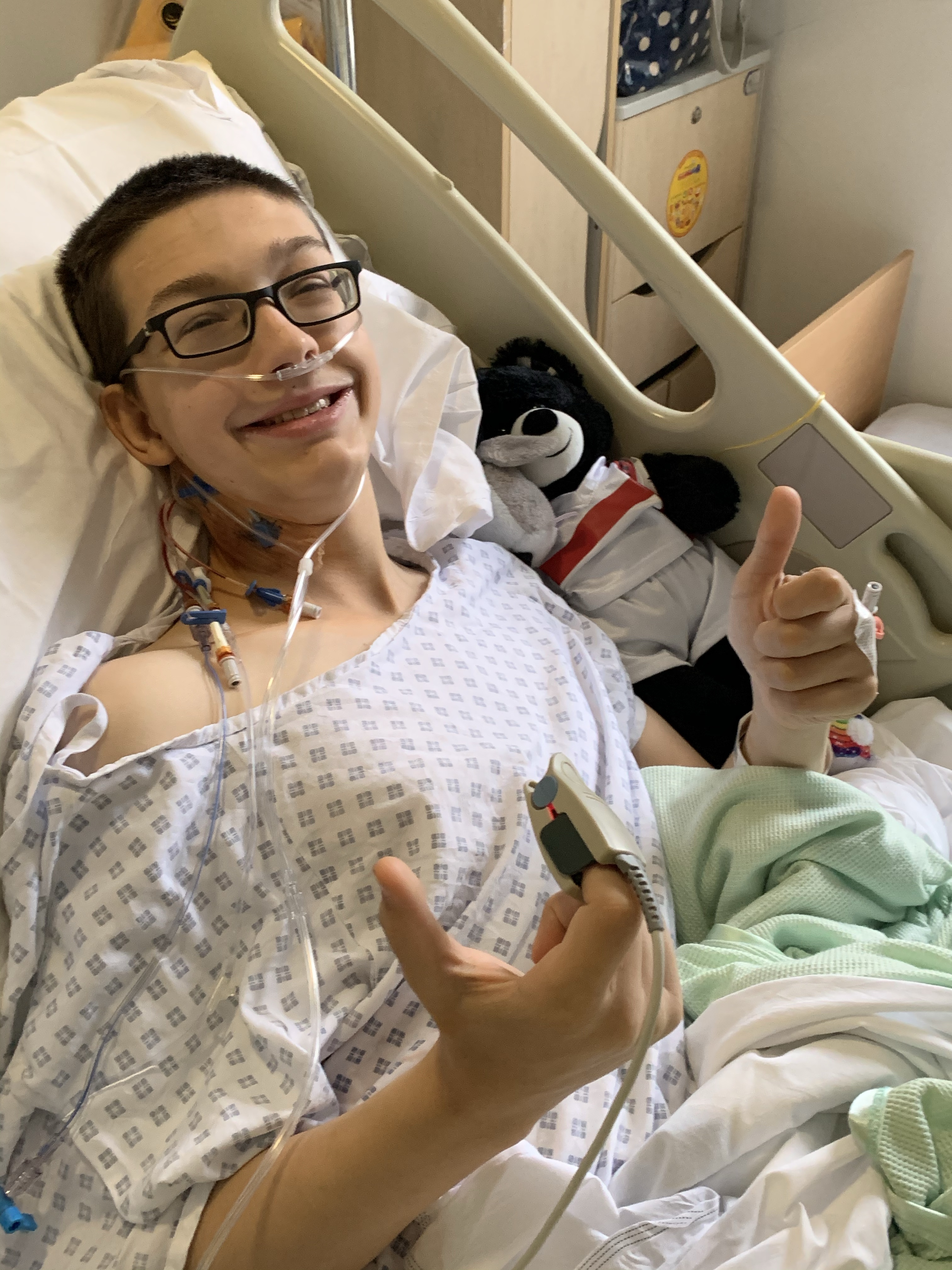I have to be honest Florence Nightingale is not a historical figure that I have ever paid that much attention to. It feels almost blasphemous to even type that statement. So I spent a bit of time this afternoon having a read around and educating myself. I guess without Florence nursing would not be an established profession in the way it is today. I would imagine setting up a School of Nursing back in Victorian times was a massive challenge, nursing wasn’t viewed as a very ladylike profession and was certainly not seen as a acceptable work for ladies of a certain social class.

I read some of the quotes attributed to Florence and the one above I thought was very profound. I had a job interview earlier this year (I didn’t get the job!) and I used this quote as part of my presentation. I strongly believe that we must continually be learning and to crave knowledge. I find it hard when I read so many opinions and views that continual learning and education is not needed. That nurses who pursue academia are somehow not interested in caring for people but merely the pursuit of qualifications. I can’t tell you how many times I have heard “you don’t need a degree to be a nurse”. If Florence were here now I am sure that she would be wholeheartedly supporting nurse education, both pre and post registration. Every single day I learn something as a nurse, it may not be earth shattering but I am forever googling, what is that? what does it mean? what are the symptoms? What is the new NICE guidance on something? It doesn’t necessarily have to be formal learning but continually learning and challenging ourselves is something I think Florence would definitely advocate.
An enthusiasm for learning is essential as a nurse, nurses should thirst for more knowledge they should strive to improve the care they offer to patients. I have worked in haematology since 1997, the changes in the diagnosis and treatment or haematological conditions has changed so much over the years. I am sure that all other specialities are the same. We have a duty to our patients to ensure that we are up to date with research and guidelines. We should continually ask questions, just like we did when we were student nurses. We were told back then there is no such thing as a silly question and I believe that is still the same today. I often plonk myself down in a consultants office or in the registrars office and say…Can you explain something to me please? I have never been turned awayor made to feel silly or stupid.

During the Coronavirus pandemic my learning curve has been steep. Learning how to videoconference, mastering Microsoft teams, telephone consultations plus all the updates within my own speciality. There have also been a wealth of free webinars on team building, psychological support, resilience. I have also been enrolled on a course provide by my Local Council on Raising Resilience in young people whilst they try to self motivate at home and struggle trying to master learning at home. Even in something that is aimed at my own child has so many learning points that can be used within my own work environment as we all struggle in these difficult times. I think all nurses have risen to the challenge that coronavirus has presented us with. Nurses have been redeployed, embraced specialities they know little about, learnt new ways of embracing technology and changing the way we work When all this is over it would be a shame to leave behind some of the new ways of working. I suspect if Florence were here she would be wholeheartedly embracing Microsoft teams, virtual ward rounds and a all hands on deck ethos.
Florence Nightingale was a political leader, she challenged the status quo, fought for the patients and was an innovator. Today nursing is a strong profession, full of nurses who strive for social justice, advocate for their patients and is deeply political. Covid 19 has thrust nursing under the spotlight and we must utilise this to show people that it is a highly skilled profession in it’s own right. That we deliver compassionate holistic care based on research and clinical guidelines. That we are proud to be nurses and are deeply committed to our patients/service users/clients.















